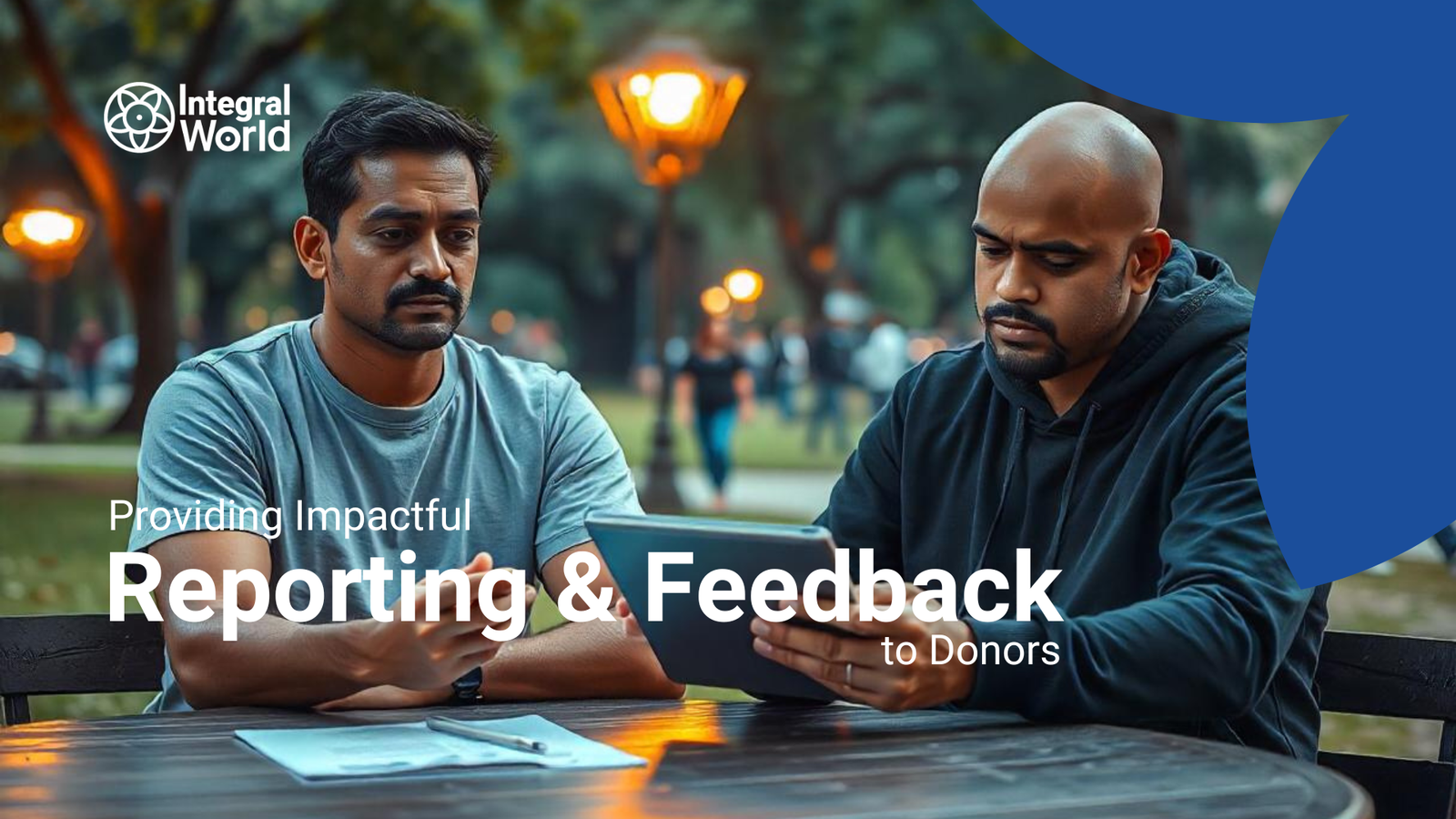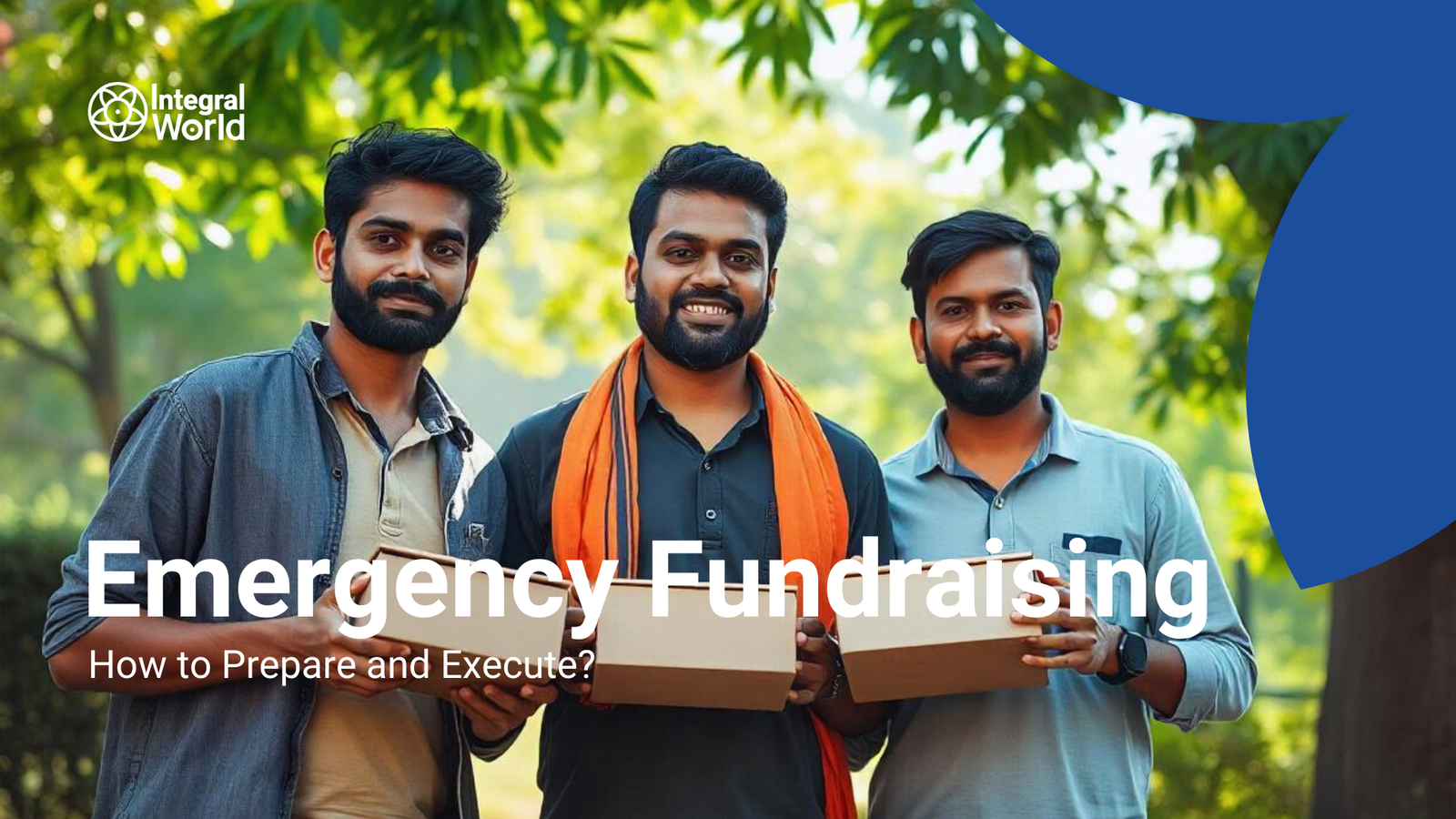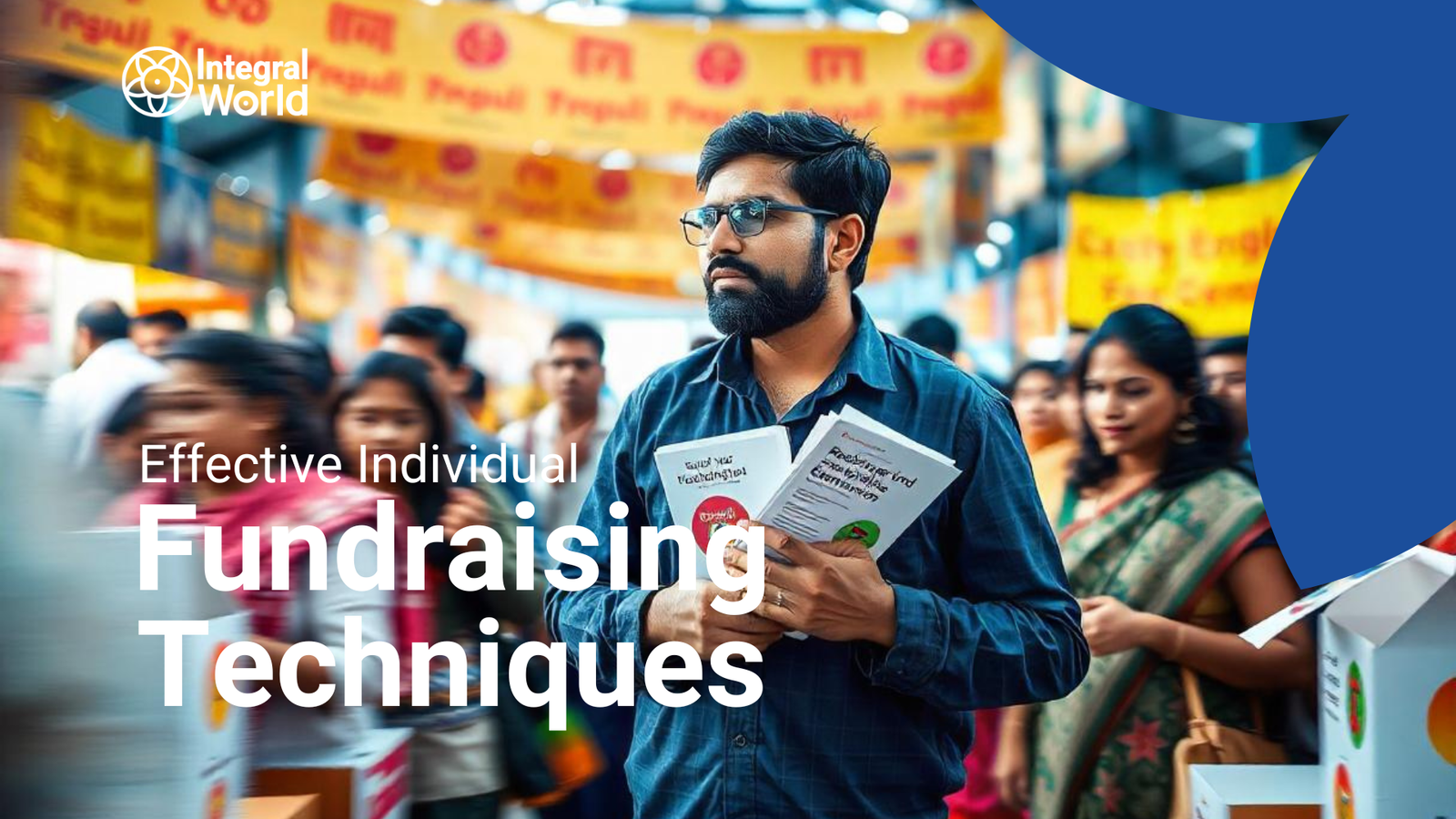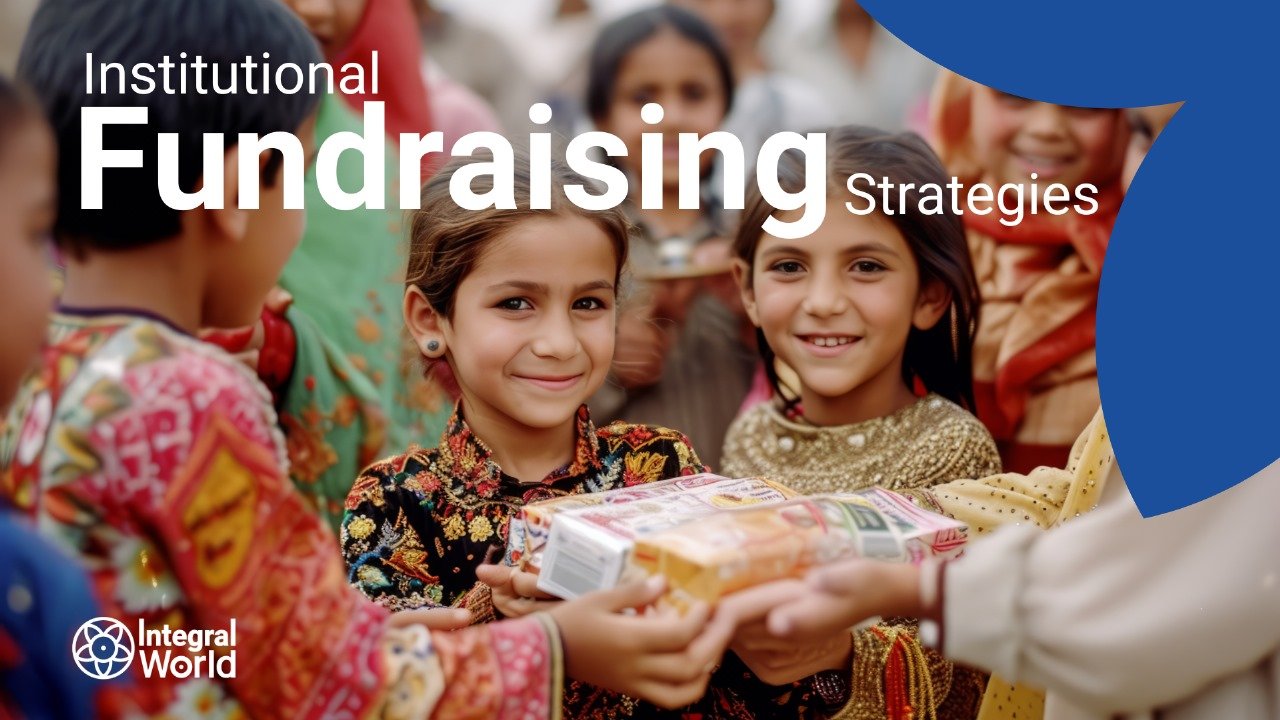Integral World builds trust with donors through transparent reporting and genuine feedback. This article explores how impactful communication helps organizations lead in sustainable development, addressing community needs and fostering positive, lasting change for humanity
Continue readingEmergency Fundraising – How to Prepare and Execute?
Emergency fundraising enables nonprofits to quickly gather funds during unforeseen crises like natural disasters or epidemics. This guide offers practical tips, real-life examples, and expert insights to help organizations like Integral World respond swiftly and effectively in urgent situations.
Continue readingEffective Individual Fundraising Techniques
Explore effective individual fundraising strategies for non-profits, with expert insights and real-life case studies to boost your efforts.
Continue readingInstitutional Fundraising Strategies for Development Orgs.
Picture yourself on the edge of opportunity and looking at a world that is ripe for transformation. As an organization involved in development, you are motivated by the desire to make a real difference in the lives of individuals and communities in need. To achieve this, effective fundraising strategies are essential.
Now, the question is how to secure resources required for translating such dreams into reality? Institutional fundraising could be your organization’s ticket towards success.
In this piece, we will look at effective institutional fundraising strategies designed specifically for Integral World as a developmental organization. We will dwell on real life experiences, offer unique insights and give inspirational quotes by renowned people that can help you maneuver through this critical part of your mission.
Effective Institutional Fundraising Strategies
1. Know Your Donor Landscape
There is a need to understand who contributes what among all donors before undertaking any fundraising campaign. You should identify potential institutional donors like foundations, corporations, government agencies or international organizations with missions and values aligned to yours.
Getting acquainted with one’s donor landscape involves extensive research aimed at identifying persons who are most likely to support their cause. This entails studying about their giving history as well as knowing their priorities and the way they usually make decisions. Developing detailed profiles for each potential donor would greatly increase chances of securing grants.
2. Come Up With an Attractive Case for Support
Your case for support is simply your pitch to prospective donors; it has got to be captivating enough, easy-to-understand and straight-to-the-point highlighting why your work matters so much. Employ storytelling techniques to demonstrate practical implications of your projects in real life scenarios.
A good case for support encompasses a clear problem statement, proposed solution and expected outcomes. It also highlights the unique strengths of your organization as well as its achievements over time thus enhancing credibility.
3. Establish Strong Relationships
Fundraising is not just about transactions but building relationships. Maintain regular communication with potential donors, update them on the progress made so far and invite them for your events. Show gratitude for their assistance, associate them with your success stories.
Consistency and meaningful engagement are crucial when it comes to nurturing relationships with donors. Keeping up to date with projects, personal communication and allowing donors opportunities to visit and interact with your programs can enhance these relationships.
Quote: “Alone we can do so little; together we can do so much.” – Helen Keller

4. Exploit Data And Research
Use data as well as other information from research to back up your case for support. Familiarize yourself with donor preferences by doing extensive studies so that you can customize your proposals accordingly. Demonstrate how evidence-based approaches are applied in order for you to achieve organizational goals.
Data and research play a pivotal role in convincing stakeholders about the efficiency and effectiveness of an organization’s operations. Clear presentation of evidence based results can help you differentiate yourself from others hence gaining trust from potential funders.
5. Tailor Your Proposals
As each donor is different, it’s important to tailor fundraising strategies to their specific interests and requirements. This should involve highlighting those aspects of your work that align with their interests and indicating how their support will make a change.
By tailoring your proposal, you get to know what each donor wants, likes or desires for his or her money. It also means that you have to personalize the language, focus areas, and even the presentation format as per the need of the donor.
6. Diversify Your Funding Sources
It is dangerous to rely on one source of funding. Instead, seek support from different types of donors so as not be caught off guard when some sources dry up. In this way; you not only enhance your chances of acquiring funds but also ensure financial sustainability.
For diversification purposes, you can apply for grants from various foundations as well as seek sponsorship from the corporate world among others. Other than that fundraising ways like events or online campaigns could be explored too.
7. Communicate Impact Effectively
One of a donor’s greatest wish lists would be seeing where his or her contribution has led to actual results. Regular project reports, newsletters, social media updates would provide good communication channels about project outcomes undertaken by someone else on behalf of the organization in question while leaving visually appealing stories can do better towards making it more relatable and tangible..
Effective impact communication entails reporting not only on quantitative outcomes but also sharing qualitative stories and testimonials. On top of that there are visuals such as infographics, photos, videos etc., which help make impact more vivid and more gripping.
“The measure of who we are is what we do with what we have.” – Vince Lombardi

8. Invest in Capacity Building
Internal capacity building plays a vital role in effective fundraising. Train your staff, improve your fundraising tools, and develop strong donor management and reporting systems.
Capacity building can be conducted through training programs, workshops as well as investment in technologies that streamline the process of raising funds. It will also enhance organizational abilities to raise funds for an organization if it has a team of fundraisers who are skilled and knowledgeable.
9. Engage Your Board and Volunteers
Board members and volunteers can be powerful advocates for your organization. They should be trained in fundraising techniques as well as involved in reaching out to donors. Their networks may open doors to new funding opportunities.
Board members as well as volunteers could help with fundraising through their networks or being ambassadors of the organization. This is possible once they have been given the necessary tools to work with them such that they become useful fully.
10. Stay Transparent and Accountable
Transparency is one way of creating trust between you the donor so that when you offer money he has surety that his fund was used effectively while you also give feedback on its outcome but not getting too much attention from this action creates suspicion on him/her mind towards you hence no need to disturb someone’s peace by trying interfere with his/her personal affairs within him/herself.
To build trust with donors, transparency must remain at the core of any activity aimed at accessing their funds leading them into very detailed reports while remaining open about one’s successes and challenges in order to maintain the trust of the latter and continue getting more support from them.
Transparency is the first step towards gaining credibility and trust from your donors by allowing them to see your financials, project results, and even the challenges you are facing. Donors may be maintained if there is regular honest communication.
“In corporations, transparency, righteousness, compassion, management of resources and even entertainment always work”. – John Gerzema
Conclusion
To ensure sustainability as well as growth in development organizations institutional fundraising forms a key aspect. By knowing who donates to you, making compelling cases for support, building strong relationships and using data , one can improve on their fundraising efforts which will ultimately lead to meaningful change.
Integral World has witnessed how effective fundraising strategies can change lives. By diversifying our funding sources, tailoring our proposals and being transparent we have created strong partnerships that have helped us make a difference.
Are you ready to take your fundraising efforts to the next level? Be part of Integral World’s vision of sustainable and holistic development. Get in touch with us today so as to find out more about how you can assist us achieve our goals thereby being part of this transformational process. Let’s make some real impact together!




